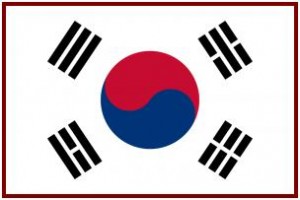
"The deal as it stands offers an unfair competitive advantage to Korean industries with negative consequences for employment levels in Europe."
The new year of 2012 by Christian reckoning marks the entrance of Hyundai Motor Europe into ACEA membership. ACEA, of course, is the official trade and lobbying group of the European auto industry. Smaller Kia is not a member. The development comes as European auto sales slumped for the fourth straight year. Hyundai had a modest gain and now holds a 3% market share at 382,255 vehicles sold in 2011.
The irony is that European automakers remain opposed to the terms of the Korean FTA, which went into effect last July. The trade deal removes the 8% duty on European cars imported into South Korea and 10% duties on Korean auto exports, among other sweeping provisions. Korea will also no longer allow non-tariff barriers requiring the further testing or homologation for imported European cars.
The South Korean FTA has a number of trade issues that the industry is wary of. EU producers have limited access to the market, and the deal as it stands offers what ACEA calls unfair competitive advantage to Korean industries with negative consequences for employment levels in Europe.
“In particular, the terms undermine an important pillar of standing EU trade policy by compromising on the so-called Duty Drawback clause and Rules of Origin threshold, both essential instruments to ensure a level playing field in international trade,” ACEA said in a statement.
The deal is significant because the European Union is South Korea’s largest trading partner, with the bilateral trade increasing to €63.6 billion (~$90.2 b) in 2010, a 17% increase from €54.3 billion in 2009 in spite of Europe’s ongoing Great Recession.
However, under current market conditions, this waiver of tariffs will not balance the growing €10.7 billion trade deficit in automobiles, according to the respected consultancy Frost & Sullivan. This is because in 2010 European automakers sold about 32,000 cars in South Korea (not counting GM Daewoo), while South Korea exported more than 666,000 vehicles in Europe in 2011.
Automobiles are now the largest export product of the South Korean economy. Its car industry with a production of 3 million cars per year, of which 2 million (64%) are exported – 300,000 of which were sent to the EU in 2010. ACEA points out that by contrast, 74% of cars produced in the EU are also registered in the EU. Because of its size and importance, the EU is a key target market for Korean manufacturers, but “uneven implementation will place the whole EU economy at a disadvantage,” according to the trade group.
Hyundai Motor Europe Technical Center is located in Rüsselsheim, Germany. Hyundai has invested €1.1 billion in its manufacturing plant in Nošovice in the Czech Republic, which currently produces over 50% of its vehicles for the European market and employs about 2,600. A third shift is planned this summer.
The FTA with South Korea was the first of a recent generation of bilateral trade agreements undertaken by the EU. Negotiations began in May 2007, and after eight negotiation rounds, the agreement was initialed by both sides in October 2009. In September 2010 the EU Council approved the agreement, and it was officially signed in October 2010. It has been in provisional application since 1st July 2011
ACEA members are BMW Group, DAF Trucks, Daimler, FIAT S.p.A., Ford of Europe, General Motors Europe, Hyundai Motor Europe, IVECO S.p.A, Jaguar Land Rover, MAN Truck & Bus, Porsche, PSA Peugeot Citroën, Renault Group, Scania, Toyota Motor Europe, Volkswagen Group, Volvo Car Corporation and Volvo Group.
See also:

